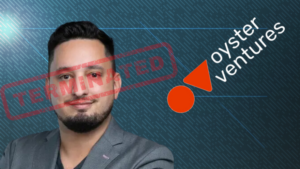Former South Carolina Governor Nikki Haley said she would seek an end to online anonymity if elected President and referred to it as a “national security threat.”
The Republican presidential candidate made her comments during a Tuesday appearance on Fox News.
“When I get into office, the first thing we have to do, social media companies, they have to show America their algorithms,” Haley said.
Haley said Americans should have a clearer understanding of what drives the content social media companies are pushing into users’ feeds.
“Every person on social media should be verified by their name,” she added. “It’s a national security threat.”
The Republican presidential candidate said removing online anonymity would force users to “stand by what they say.”
“It gets rid of the Russian bots, the Iranian bots, and the Chinese bots,” she said. “Then you’re gonna get some civility when people know their name is next to what they say.”
She concluded the move would help the country.
NEW – Nikki Haley Says Allowing People to Post on Social Media Anonymously is a 'National Security Threat’
"Every person on social media should be verified by their name…It gets rid of the Russian bots, the Iranian bots, and the Chinese bots"pic.twitter.com/C6GoT7n1cN
— Chief Nerd (@TheChiefNerd) November 14, 2023
Fellow Republican candidate and Florida Governor Ron DeSantis fired back at Haley’s suggestion.
“You know who were anonymous writers back in the day? Alexander Hamilton, John Jay, and James Madison when they wrote the Federalist Papers,” DeSantis said of the Framers of the Constitution of the United States.
“They were not ‘national security threats,’ nor are the many conservative Americans across the country who exercise their Constitutional right to voice their opinions without fear of being harassed or canceled by the school they go to or the company they work for,” he said.
The Florida governor said Haley’s proposal was akin to Chinese censorship and called it “dangerous and unconstitutional.”
“It will be dead on arrival in my administration,” he added.
You know who were anonymous writers back in the day? Alexander Hamilton, John Jay, and James Madison when they wrote the Federalist Papers.
They were not "national security threats," nor are the many conservative Americans across the country who exercise their Constitutional… https://t.co/YkAGMhUVCX
— Ron DeSantis (@RonDeSantis) November 15, 2023
Jeremy Boreing, co-CEO of conservative media outlet The Daily Wire, took a middle-ground approach and referred to her proposal as “silly,” though said anonymity was the reason conservative speech online was threatened in the first place.
“Conservatives live in constant fear of losing their jobs from speech because we’ve allowed them to ghettoize our beliefs, and trick us into thinking the ghetto offers us protection,” Boreing wrote. “All it really does is make it easy to destroy anyone who gets caught venturing out of the ghetto, which keeps more people in. It’s self-perpetuating.”
Boreing countered DeSantis’ claim that the Framers of the Constitution worked under the guise of anonymity by saying “anonymous hate trolling online is not akin to publishing tracts under a pseudonym.”
“It’s far more akin to rioting with a mask on,” he continued. “It has, more than anything else, contributed to radicalization and dehumanizing of political opponents on both sides.”
Meh. Hailey’s “national security” bit was silly, but anonymous social media use isn’t the answer to protecting conservative speech online – it’s the reason conservative speech online is threatened in the first place.
Conservatives live in constant fear of losing their jobs from… https://t.co/UWYqyq7oHz
— Jeremy Boreing (@JeremyDBoreing) November 15, 2023
“It’s popular, obviously, so politicians are loathe will [sic] challenge it,” Boreing wrote. “And it’s difficult to distinguish it from protected speech, so it is not clear how best to regulate it within our framework.”
“But we would have more and better speech without it, and a better country too,” he said, echoing Haley’s remark in conclusion.
On Wednesday, Haley appeared on CNBC and walked back her Tuesday statement.
“We need our social media companies to verify everybody,” she said, reiterating the need for removing bots from online discourse.
.@NikkiHaley incoherently attempts damage control
She repeats her plan to register all social media users by name
Then says "I don't mind Americans having anonymous free speech"
…if you force U.S. users to register their names, that makes "anonymous free speech" IMPOSSIBLE pic.twitter.com/xfzjzjDSLZ
— John Hasson (@SonofHas) November 15, 2023
“Do I think life would be more civil if we were able to do that? Yes,” she added. “You should stand by what you say.”
Haley clarified she didn’t mind “anonymous Americans” on social media platforms.
“What I don’t like is anonymous Russians and Chinese and Iranians having free speech,” she said.
